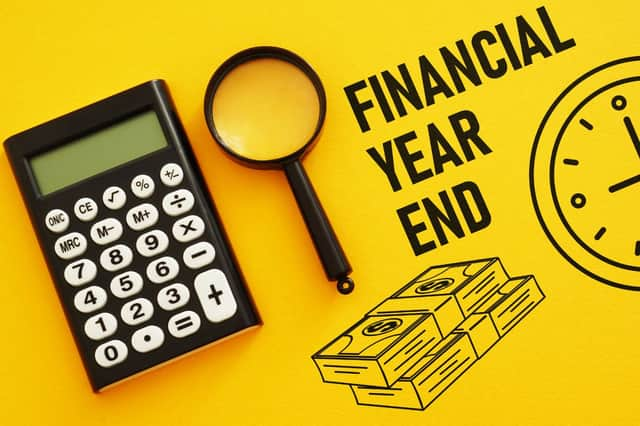When Does The Financial Year End? Here are the dates for 2024/25 and why it's different from a normal year?


It may be more than three months since we welcomed in 2024, but this week sees the arrival of New Year in the business and tax world.
The new financial year sees new regulations come into place, including decisions made in the last UK and Scottish budgets, meaning it has implications for both corporations and individuals.
And it’s also when the tax year begins and ends.
Here’s everything you need to know.
What is a financial year?
Advertisement
Hide AdAdvertisement
Hide AdWhen we talk about a financial year we are referring to the 12-month period that companies, governments, organisations, and individuals use for tax and accounting reporting purposes. Also known as a fiscal year or tax year, it’s used for things like tax, turnover, and companys’ profits and loss calculations.
When does the financial year end and begin?
The financial year always ends on April 5 and starts on April 6. That means the 2023/24 financial year will end on Friday, April 5, and start on Saturday, April 6. The 2024/25 financial year will then end on Saturday, April 5, 2025.
Why is a financial year different from a normal year?
The tradition dates back to 1752, when Britain switched to the Gregorian calendar which governs our months today. The old Julian system saw the financial year begin on New Year’s Day, the equivalent of March 25th.
The British Treasury decided to keep the 1752/53 tax year as 365 days, so as not to lose revenue. This means that, from then on, the tax year would end on April 4th, with the new one beginning on April 5th.
This was shifted by one day in 1800, as there was no Gregorian leap year, but there was a Julian one, giving us the dates we use today. It has remained this way ever since then.
Why should I care about the end of the financial year?
Most people in the UK pay tax through the Pay As You Earn scheme and so don’t need to worry unduly about the end of the tax year - if you need to submut a tax return for other earnings HMRC will let you know. Those people who are self employed, however, have to submit a tax return by January 31 and the period that covers is the previous financial year.
The new financial year also resets the allowance for certain tax allowances and investments - including ISAs, Junior Isas, pension pots and the capital gains allowance.
April 6 is also when changes announce in the budget come into force - so that means the likes of National Insurance Contributions falling from 10 per cent to 8 per cent, the threshold for the High Income Child Benefit Charge rising from £50,000 to £60,000.
Comments
Want to join the conversation? Please or to comment on this article.